A Conversation with Bruce Duffie
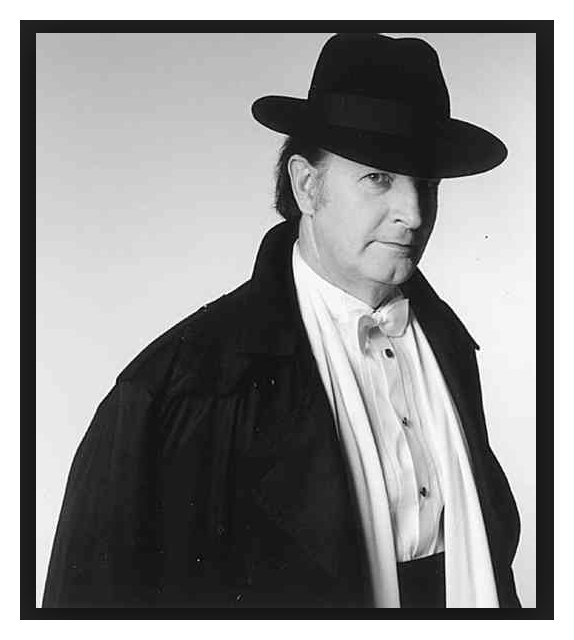

| Since the times of Jan Kiepura, Wiesław
Ochman has been the first truly world-famous Polish tenor. Born in Warsaw
in 1937, he first had the ambition to become a painter, before turning instead
to vocal studies. In 1960 he joined the Silesian State Opera and for three
seasons undertook a number of major parts there, while continuing his vocal
training with Maria Szłapak. In the autumn of 1963 he moved to the opera
house in Kraków, but a year later returned to his home city of Warsaw,
where the Teatr Wielki was about to be reopened after rebuilding. His performance
as Jontek in Moniuszko’s Halka, together with three other productions
for the 1965 grand opening of the theatre, became the turning-point in his
career. In the same season he also won success singing the title rôle
in Faust. This resulted in an invitation to the
Berlin State Opera, where he sang the part of Turiddu in Cavalleria rusticana in January 1967, followed by appearances
in Munich and Hamburg. At Glyndebourne he sang Lensky in Eugene Onegin, then Tamino in Die Zauberflöte, appeared in Salzburg and, something hitherto
unheard of for a Polish tenor, gained international fame as an excellent
interpreter of Mozart. In particular he became a much sought-after performer
for the rôle of Ottavio in Don Giovanni, and the title rôle in Idomeneo. In 1972 he appeared at the Paris Opéra,
and in the United States, making his début at the Metropolitan Opera
in New York in 1975 as Arrigo in Verdi’s I vespri siciliani, and going on later to appear there in
Eugene Onegin, Boris Godunov and Khovanshchina. Meanwhile in 1982 he had made his début
at La Scala, Milan, under Claudio Abbado. The recipient of various official
awards in Poland, Wiesław Ochman has an extensive repertoire both in opera
and in oratorio. He has the largest number of recordings to his credit among
all the Polish singers, both from the present and from earlier generations. -- Biography from the Naxos website
Besides the awards and honors listed above and below, Ochman won the Gold Medal from the American Institute of Polish Culture in 2005. |
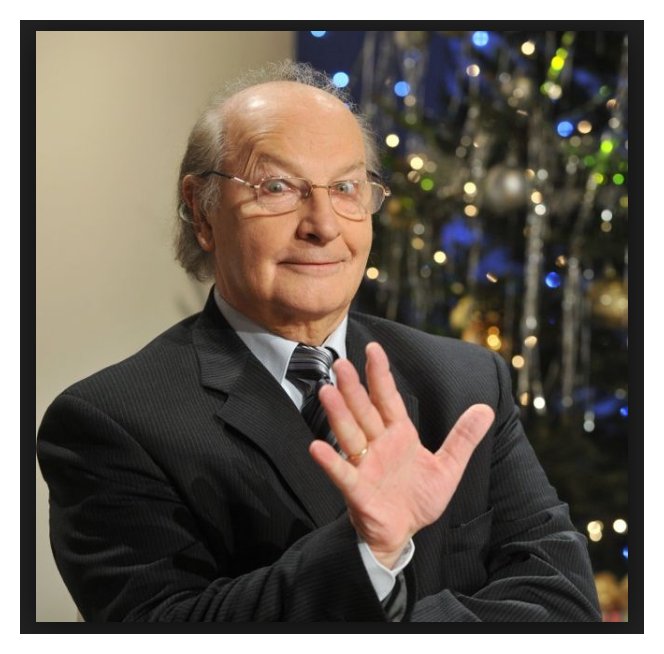 WO: Yes, my American debut. Not only for this
reason also, but I think Chicago is a kind city, really an American one.
I like very much this architecture. This is different than New York
or San Francisco. Here is a little bit older architecture together
with very modern, and I like this very much. The downtown is very beautiful.
And I must tell that the Chicago Lyric Opera is really a top theater.
I like very much. Very professional. For example, Boris Godunov has plenty of problems
every time with the chorus. For me, it was really surprising that the
chorus here had very good studying of Russian, and they’re singing really
marvelous. We were all happy because we have Bartoletti, which helped
us, because the opera is very difficult. It’s not exactly a typical
Italian opera.
WO: Yes, my American debut. Not only for this
reason also, but I think Chicago is a kind city, really an American one.
I like very much this architecture. This is different than New York
or San Francisco. Here is a little bit older architecture together
with very modern, and I like this very much. The downtown is very beautiful.
And I must tell that the Chicago Lyric Opera is really a top theater.
I like very much. Very professional. For example, Boris Godunov has plenty of problems
every time with the chorus. For me, it was really surprising that the
chorus here had very good studying of Russian, and they’re singing really
marvelous. We were all happy because we have Bartoletti, which helped
us, because the opera is very difficult. It’s not exactly a typical
Italian opera.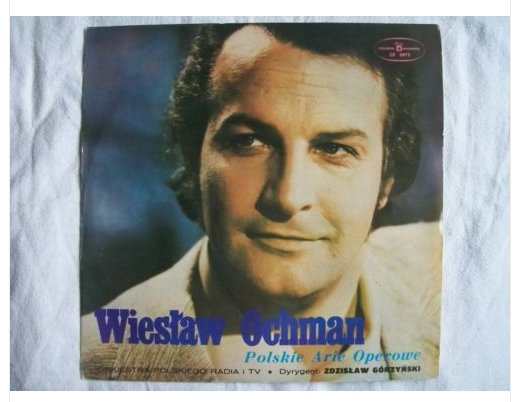 WO: Yes. The popular ones are Halka, Straszny Dwór, that’s The Haunted Manor, Paria, and Flis which is The Raftsman. It was at that time
that Moniuszko composed this opera to keep the Polish people strong.
We did not gain our freedom again until 1918, so during this time all our
art was working with thinking that we should have Polish art everywhere.
We have very good painter, Matejko [1838-1893]. He’s a really great
painter, and he was painting only the glorious story of the Polish military
and the Polish people. Moniuszko every time utilized the Polish tenor.
Halka is the story about a mountain
girl and a country gentleman. This was very different. It was
about problem of society, so he used folk music! The basis was folk
music.
WO: Yes. The popular ones are Halka, Straszny Dwór, that’s The Haunted Manor, Paria, and Flis which is The Raftsman. It was at that time
that Moniuszko composed this opera to keep the Polish people strong.
We did not gain our freedom again until 1918, so during this time all our
art was working with thinking that we should have Polish art everywhere.
We have very good painter, Matejko [1838-1893]. He’s a really great
painter, and he was painting only the glorious story of the Polish military
and the Polish people. Moniuszko every time utilized the Polish tenor.
Halka is the story about a mountain
girl and a country gentleman. This was very different. It was
about problem of society, so he used folk music! The basis was folk
music. 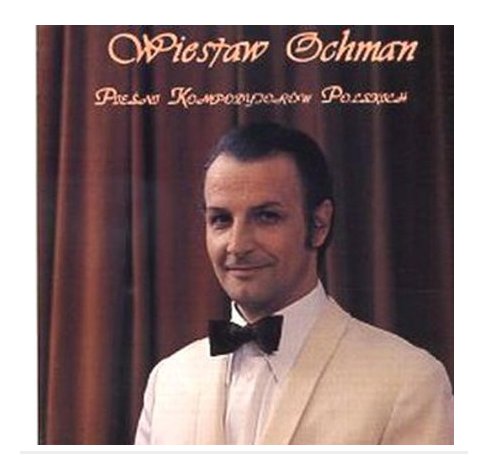 WO: I must say that the Polish opera, Straszny Dwór, The Haunted Manor, is very difficult
to sing because there is plenty of soft passages. Moniuszko was not
exactly a composer who understands many things of singing. He just
wrote from heart, so it’s very difficult. He wants atmosphere.
For example, the aria of Stephan. He’s alone, and the old melody while
he is standing watch reminds him of his childhood years. When your
mother dies, if you have something to say it is impossible to sing fortissimo.
It’s very difficult, and there is a very dangerous part to it.
WO: I must say that the Polish opera, Straszny Dwór, The Haunted Manor, is very difficult
to sing because there is plenty of soft passages. Moniuszko was not
exactly a composer who understands many things of singing. He just
wrote from heart, so it’s very difficult. He wants atmosphere.
For example, the aria of Stephan. He’s alone, and the old melody while
he is standing watch reminds him of his childhood years. When your
mother dies, if you have something to say it is impossible to sing fortissimo.
It’s very difficult, and there is a very dangerous part to it. 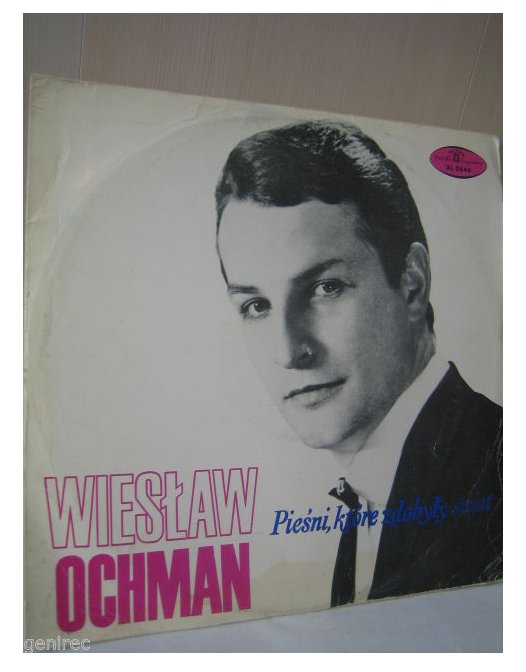 WO: Of course. I am sure that now that there’s
plenty of recordings, many people, every lover of the opera have some singers
they love. That’s a very good idea, because this is the way to study
opera. If you have no recording, that’s terrible. Think of the
radio, for example, you! The other day I heard this marvelous work
on the classical station, and it’s really, really beautiful! The public
says sometimes, “Okay, I don’t like the Mozart. I prefer pop music.”
But if you show very good Mozart, they can hear it. My son likes very
much the Smokies, the Pink Floyd, and the other kinds, but, he is very fond
of Mozart, too.
WO: Of course. I am sure that now that there’s
plenty of recordings, many people, every lover of the opera have some singers
they love. That’s a very good idea, because this is the way to study
opera. If you have no recording, that’s terrible. Think of the
radio, for example, you! The other day I heard this marvelous work
on the classical station, and it’s really, really beautiful! The public
says sometimes, “Okay, I don’t like the Mozart. I prefer pop music.”
But if you show very good Mozart, they can hear it. My son likes very
much the Smokies, the Pink Floyd, and the other kinds, but, he is very fond
of Mozart, too.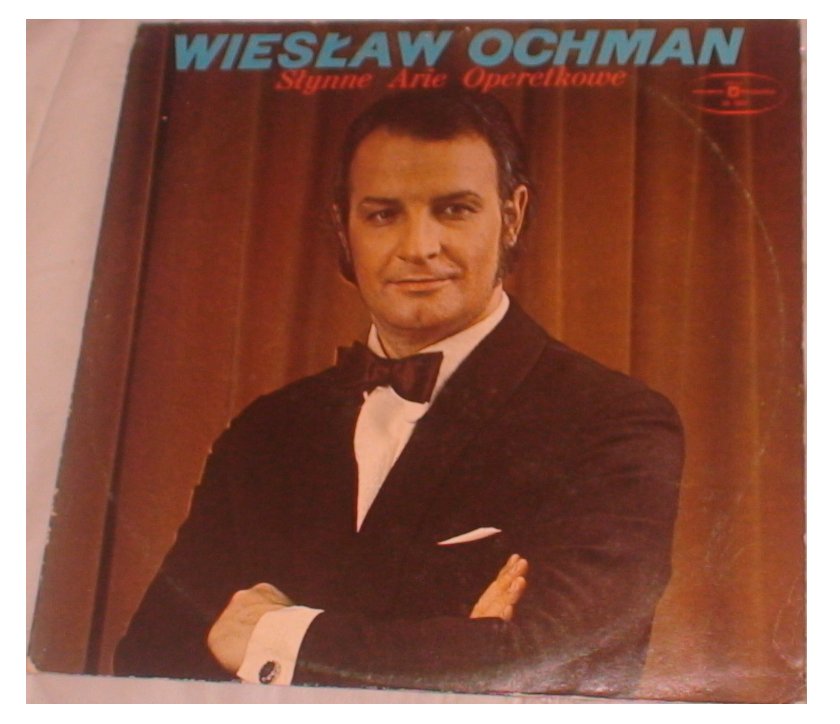
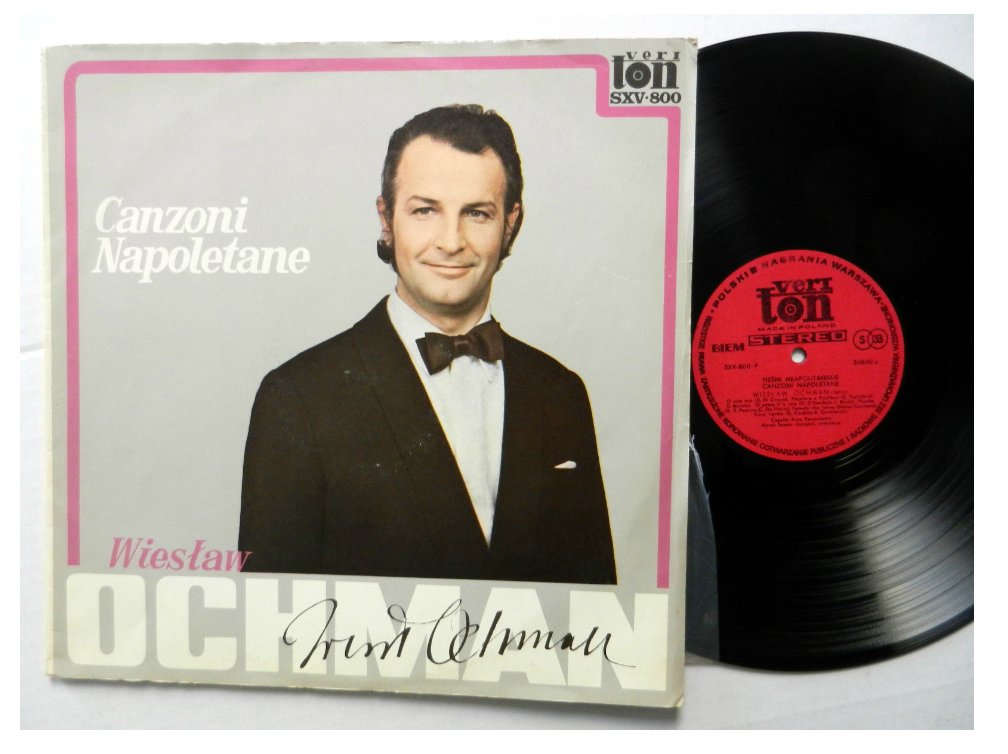
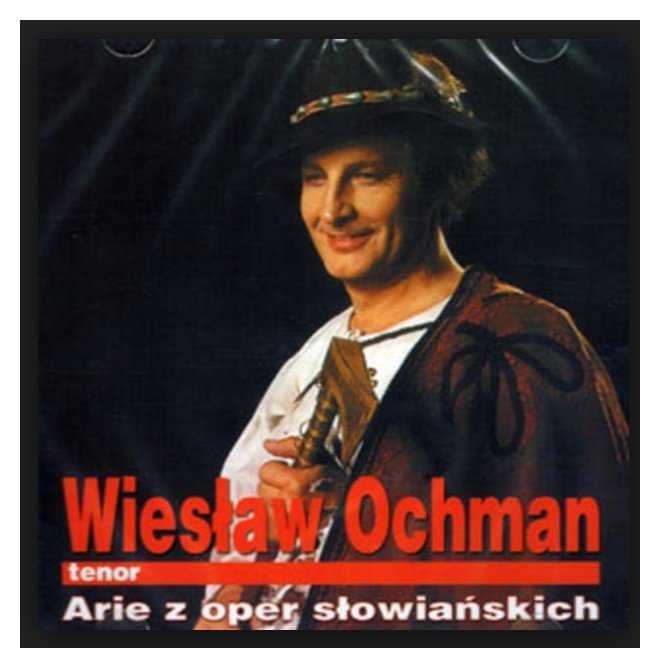 BD: In the large cities like Warsaw and Kraków,
the opera season is not just Polish opera, right? I assume it’s all
kinds of operas.
BD: In the large cities like Warsaw and Kraków,
the opera season is not just Polish opera, right? I assume it’s all
kinds of operas.|
Wiesław
Ochman
He graduated from the Faculty
of Ceramics of the University of Science and Technology in Kraków
(1954-60). While studying, he started learning to sing under the tuition
of Gustaw Serafin. He completed private studies under the supervision of
professors Maria Szłapak, Sergiusz Nadgryzowski and Jerzy Gaczek. He debuted
in Bytom in 1960 on the stage of the Silesian Opera as Edgar in Lucia di Lamermoor by Gaetano Donizzeti. In 1965 he sang
the part of Jontek in Halka staged to celebrate the opening of the
rebuilt Grand Theatre National Opera in Warsaw. In the years 1966-68 he was
a member of the Deutsche Staatsoper ensemble in Berlin and then he gave guest
performances on all significant opera stages of the world: Hamburgische Staatsoper,
Deutsche Oper, La Scalla in Milan, Metropolitan Opera in New York, operas
in Barcelona, Paris, Geneva, Zurich, Moscow, Madrid, Chicago, Buenos Aires,
Washington, Rome, Salzburg, San Francisco, Seville, Vienna, Brussels, Frankfurt,
Zurich, Toulouse, Marseille, and on prestigious musical festivals such as
Orange, Glydenbourne Festival Opera etc. He has given concerts on leading
stages: Carnegie Hall, Wiener Musikverin, Salle Pleyel in Paris, all philharmonic
concert halls in Poland. He has performed with Berlin and Vienna Philharmonikern
under the baton of such distinguished conductors as Herbert von Karajan,
Karl Böhm, Eugen Jochum, Leonard Bernstein, Nello Santi, Giuseppe Patane, James Levine, Charles Mackerras, Vaclav Neumann, Gert Albrecht, Christoph
von Dohnányi, John Pritchard, Claudio Abbado, Riccard Mutti, Rafael
Kubelik as well as Polish outstanding conductors: Włodzimierz Ormicki, Krzysztof
Missona, Stanisław Wisłocki, Witold Rowicki, Stefan Rachoń, Zdzisław Górzyński,
Karol Stryja, Jan Krenza, Kazimierz Kord, Tadeusz Strugała, Tadeusz Serafin,
Antoni Wit, Jerzy Maksymiuk and others. He acted in performances directed
by most distinguished directors such as Erhard Fisher, August Everding, Goetz Friedrich, Joseph Losey, Andriej
Tarkowski, Juri Ljubimov, John Dexter, Petrica Ionesco, Evald Schorm, Gian Carlo Menotti, Harry Kupfer,
Jonathan Miller and others.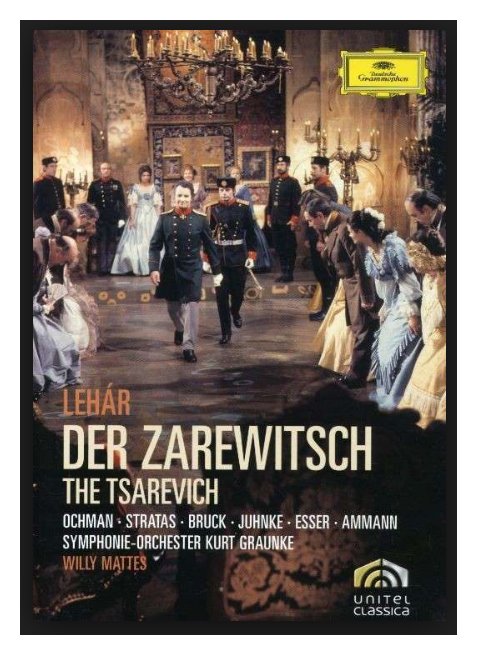
He has made a lot of radio and album recordings of opera, symphonic and popular music for renowned record companies. He played in film version of Tsarevich by F. Lehár (title part) [see photo above], Salome by R. Strauss (as Narraboth) and in Eugene Onegin (as Lenski). After 1999 he took up opera directing. 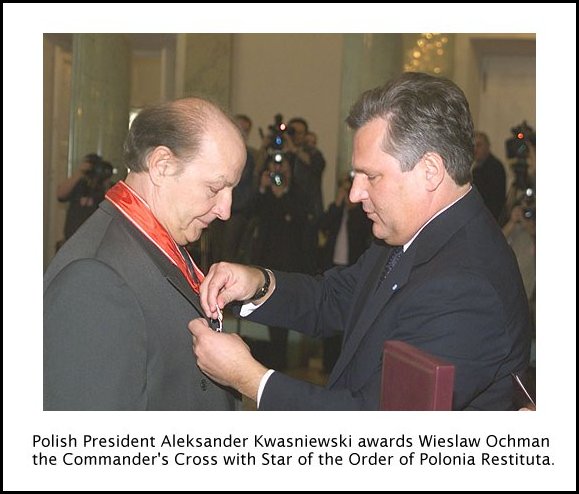
He had more than 70 individual painting exhibitions. Charity has become an important element of his activity – in April 2012 he participated in 20th Gala Concert of Auxilium Foundation which supported the hospital in Zawiercie. He is the honorary resident of Zawiercie, Bytom and Zelowo. He has been awarded numerous distinctions, including Commander’s Cross of the Order of Polonia Restituta [see photo above]. He is a member of Polish Academy of Arts and Sciences as well as doctor honoris causa of the University of Science and Technology in Kraków and of Józef Ignacy Padarewski Academy of Music in Poznań. He was honoured by the authorities of Zawiercie which named one of the roundabouts after him. 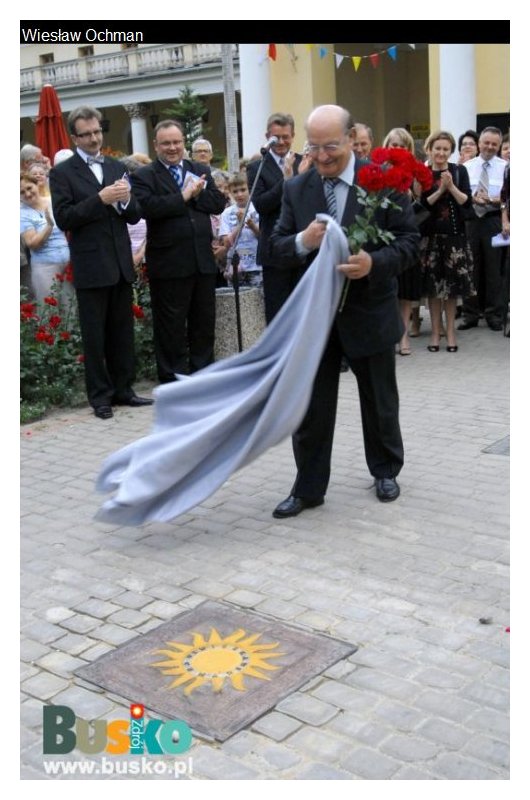
-- Text from the website of
the Silesian Opera, Bytom, Silesia, Poland
(photos added for this website presentation) |
This interview was recorded in the studios of WNIB on October 10,
1980. Segments were used (with recordings) on WNIB in 1987, 1990 and
1997. The transcription was made and posted on this website in 2013.
To see a full list (with links) of interviews which have been transcribed and posted on this website, click here.
Award - winning broadcaster Bruce Duffie was with WNIB, Classical 97 in Chicago from 1975 until its final moment as a classical station in February of 2001. His interviews have also appeared in various magazines and journals since 1980, and he now continues his broadcast series on WNUR-FM.
You are invited to visit his website for more information about his work, including selected transcripts of other interviews, plus a full list of his guests. He would also like to call your attention to the photos and information about his grandfather, who was a pioneer in the automotive field more than a century ago. You may also send him E-Mail with comments, questions and suggestions.